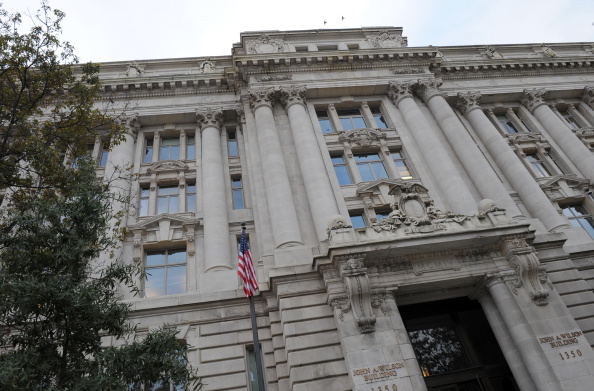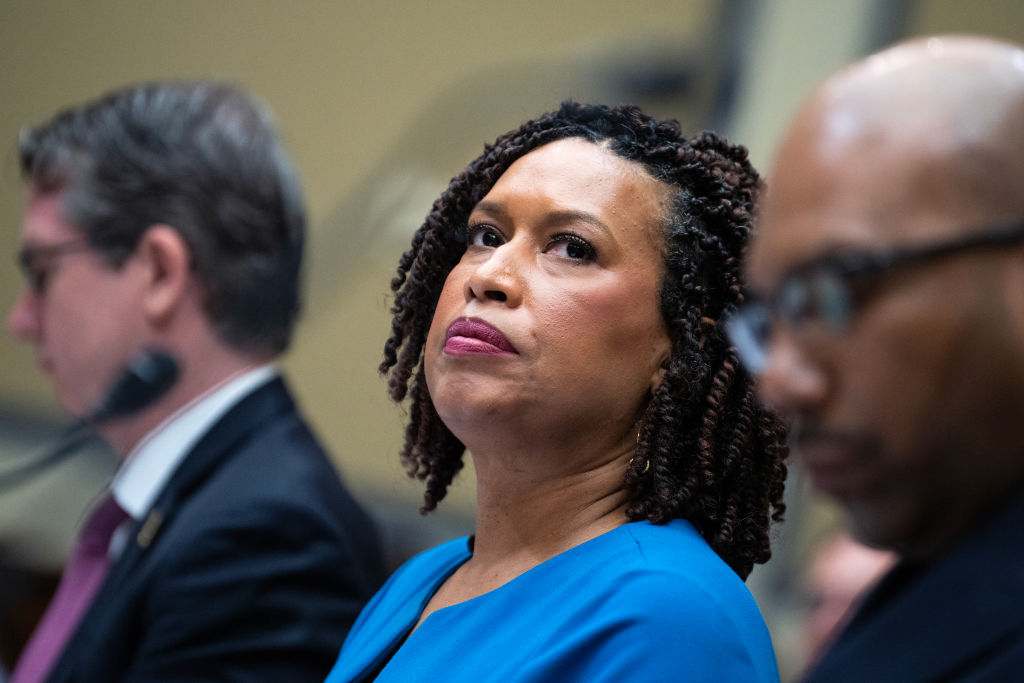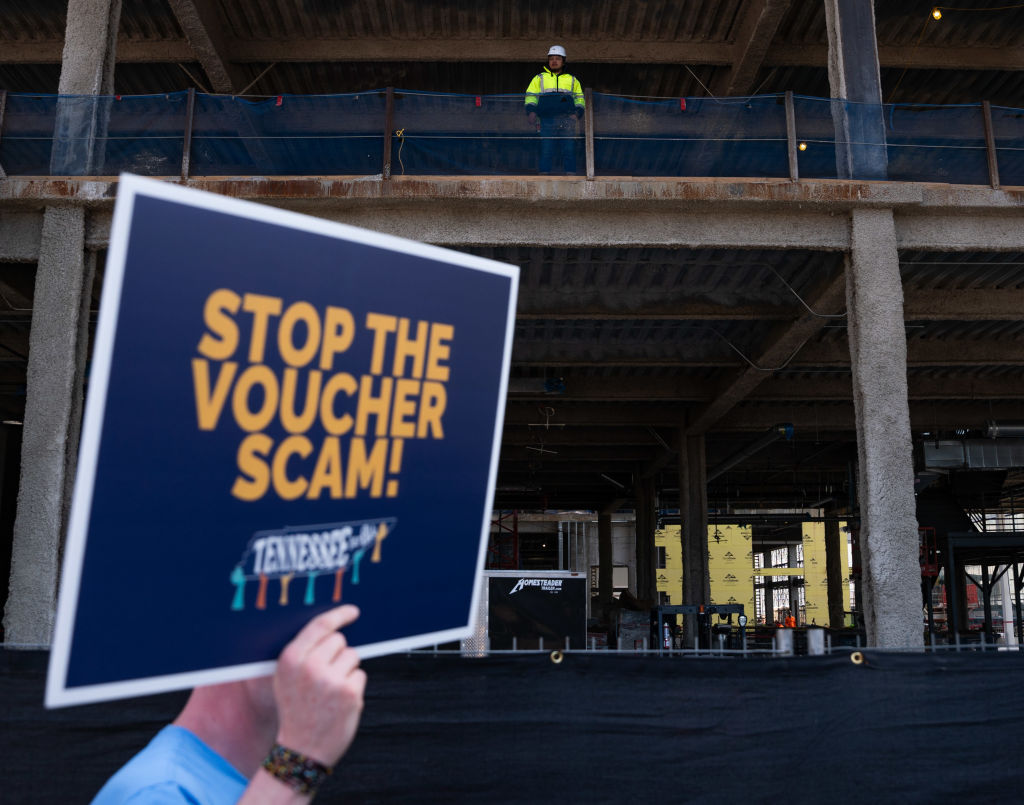DC Council Vote Could Undermine Affordable Living For Families
D.C. Council Vote Could Undermine Affordable Living For Poor And Working Families

The Wilson building, which houses the Mayor’s office and the City council chambers in Washington, D.C. | Source: The Washington Post / Getty
One step forward, five steps back. This year, the D.C. Council has been dealt an admittedly nontrivial hand. With the end of the Public Health Emergency comes the end of federal dollars and policies that kept millions of Black and brown families afloat and out of poverty across the nation. In D.C., we saw eviction moratoriums and housing assistance programs like STAY DC keep our families housed; we saw 40% of DC children kept out of poverty thanks to the increased Child Tax Credit and the removal of work requirements; we saw increases in SNAP benefits and stimulus payments that kept clothes on our backs and food on the table. And, this year, it’s all gone.
Instead of rising up to the challenges brought down by a constrained budget and a hardship-filled economic recovery plan, Mayor Muriel Bowser (D-D.C.) made the decision to pursue further cuts to basic social safety nets that support D.C.’s most marginalized community members. Advocates are calling Bowser’s proposal the #BrokenHeartBudget for a reason: The Mayor’s budget decimated D.C.’s primary rental assistance program and tenant legal supports; cut funding for childcare providers and excluded workers; fully defunded a baby bonds program that would give new promise to D.C.’s poorest kids; and, made zero investments in reducing rider costs for public transportation, supplementing SNAP, or affording more permanent supportive housing. Yet, Bowser’s budget offered hefty tax breaks to developers for the eventual conversion of downtown. To be frank, it feels as though Bowser chose to invest more in the pockets of friends and political funders than she did in the livability of Black and brown, poor and working families.
At the same time that Council has been negotiating our local budget, D.C. families have been getting attacked from another side. Indeed, the federal political landscape does not paint a livable picture for our people.
We are operating under an unfriendly Congress. Republicans, and even some Democrats, have interfered with D.C. Home Rule, pursued policies that harm reproductive freedom and that put the LGBTQ community at risk. D.C. decision-makers must take the threat of an antagonistic federal body at face value. Recently, House Republicans passed their harmful Default on America Act which would cost D.C. families millions in much-needed benefits. We’re at risk of losing 700 childcare seats and money for 3,600 housing vouchers. 34,000 families – including 5,000 seniors – may lose SNAP or WIC benefits altogether due to increased work requirements, and 95,000 D.C. residents are at risk of losing health coverage for the same reason. And, to be clear, it’s likely that these cuts will impact the very same individuals and families all at once. The House GOP’s bill makes all of these cuts while at the same time letting $114 billion from wealthy tax cheats slide.

D.C. Mayor Muriel Bowser testifies during the House Oversight and Accountability Committee hearing titled “Overdue Oversight of the Capital City: Part II,” in Rayburn Building on May 16, 2023. | Source: Tom Williams / Getty
(It would be wrong not to mention that D.C. is engaging in a similar pattern by considering the tax breaks to downtown developers and possibly allowing a surcharge tax on super wealthy properties to sunset, cutting off over $100 million in revenue that could support the much-needed social support programs named above).
As people in power make decisions that restrict necessary safety nets for impacted communities, local governments need to step up, not back. This budget season, the D.C. Council has an incredible opportunity to reflect on the lessons of progressive, pandemic spending that supports the families most impacted by economic spirals. Unlike the wealthy, poor and working families put the money they earn right back into our economy.
If we want to revitalize downtown and respond to the housing crisis in D.C., then our elected leaders need to take bold action. For instance, they could stop displacement by capping rents that are going up too high, and too fast.
If we want to address public safety, then our elected leaders need to invest in communities through violence interruption programs, libraries and better schooling and school-based resources, victim services grants that drastically improve the conditions of people who have been harmed – the majority of them, Black women, – and improving food access for all.
If we want to create economic opportunity for small businesses across our main streets and corridors, then our elected leaders need to incentivize development that serves the community that’s here, not just newcomers. Instead of only supporting pricey restaurants and bougie bars, they need to invest in grocery stores, laundromats and childcare opportunities that keep our communities and economy running.
If they want to create the city that we all claim to want – absolved of houselessness, violent crime and hunger – then the D.C. Council needs to take seriously the threats coming down from Congress and the administration and step up to the plate for poor and working-class people.
The Council will take its final vote on the budget on Tuesday. This year is not the year to go back to pre-pandemic ways of thinking and spending. It’s time to take the lessons learned and move forward, creating a more just and equitable Washington, D.C., for all the people who have the wonderful honor of calling this city home.
Aura Cruz Heredia is a grassroots policy organizer with SPACEs in Action.
SEE ALSO:
What Are The Projects? A Brief History Of Public Housing In America
















